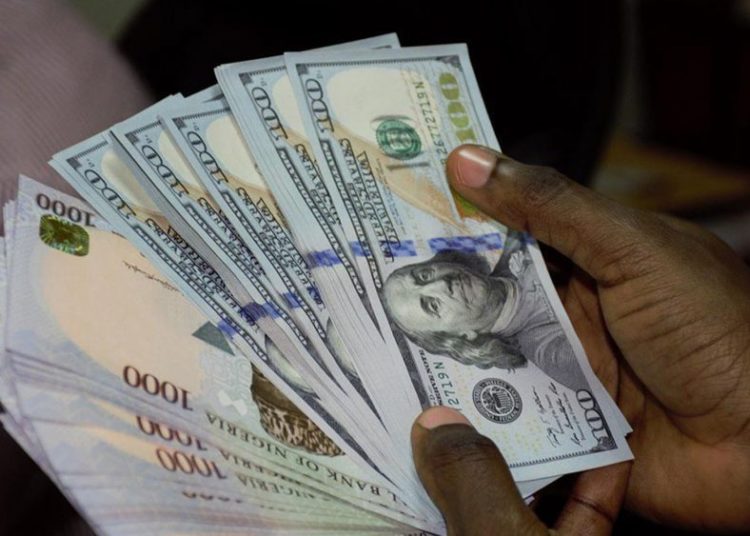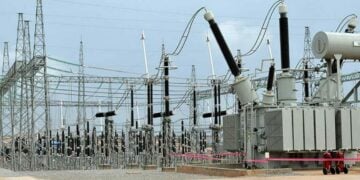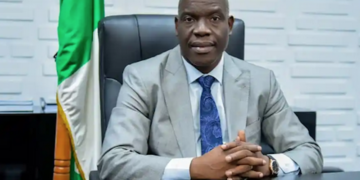The federal government has introduced the Foreign Currency Voluntary Disclosure, Depositing, Repatriation, and Investment Scheme, known as the Disclosure SCHEME as part of efforts to enhance Nigeria’s financial transparency and stimulate economic growth.
With this development, the federal government is offering a nine-month tax and penalty forbearance thus allowing citizens to deposit dollar cash into their bank accounts without incurring taxes or penalties, provided the funds are legitimate and meet standard banking requirements.
Announced Thursday night by the Ministry of Finance in Abuja, the initiative is backed by Executive Order No. 15 of 2023 and the “Foreign Currency Disclosure, Deposit, Repatriation, and Investment Scheme Guidelines, 2024” issued by the minister of finance and coordinating minister of the economy, Wale Edun.
According to Edun, the disclosure scheme is designed to integrate foreign currency assets held by Nigerians both domestically and abroad into Nigeria’s formal economy.
The programme is a response to President Tinubu’s vision of a transparent, inclusive, and resilient economy, one aligned with global standards in anti-money laundering (AML) and countering the financing of terrorism (CFT).
“The Disclosure Scheme is a bold initiative aimed at integrating foreign currency outside the formal financial system into the formal economy,” said Edun.
“It strengthens transparency and economic resilience, setting us on a path to rapid economic growth. The scheme offers a secure, confidential channel for people to reintegrate their legitimate foreign currency funds, promoting stability and growth for our nation.”
The minister said the scheme is open to Nigerians with legitimately earned internationally tradable foreign currency. Key features include voluntary participation, with participants required to hold a domiciliary account at one of the deposit money banks regulated by the Central Bank of Nigeria (CBN). The funds are held in a specially designated sub-account to ensure transparency and compliance.
Significant incentives are offered to participants: they will face no tax audit, investigation, or liability on disclosed amounts, and they will have protection from expropriation or forfeiture of disclosed funds. Additionally, funds can be repatriated freely at prevailing exchange rates, according to scheme guidelines.
Confidentiality is a cornerstone of the Disclosure Scheme. Information shared by participants will be safeguarded under Nigeria’s legal framework, providing further assurance to those bringing their assets into the formal system.
To uphold the integrity of the Disclosure Scheme, financial institutions involved are required to comply rigorously with AML/CFT measures. These provisions are in place to prevent potential misuse of the scheme for money laundering or terrorism financing, according to the Ministry of Finance.
“The effective application of AML/CFT/CPF preventive measures is key to ensuring that the scheme is not used for money laundering or terrorism financing,” the ministry stated.
Earlier while briefing State House correspondents on Thursday after the National Economic Council meeting presided over by Vice President, Kashim Shettima at the Presidential Villa, Edun said this programme aims to encourage Nigerians holding foreign currency outside the financial system to securely bring those funds into the formal banking sector.
The initiative, effective immediately, seeks to bolster Nigeria’s foreign reserves and stabilise the exchange rate by making foreign currency more accessible within the formal economy.
Edun emphasised that this is an opportunity for citizens to move cash held outside the banking system into secure, regulated accounts without fear of punitive measures.
“This initiative offers a safe, compliant path for Nigerians holding dollar cash to deposit these funds into their bank accounts, adding to our reserves and potentially easing pressures on the exchange rate,” Edun explained.
He underscored that only legitimate funds will qualify, with banks required to verify sources under existing Know Your Customer (KYC) guidelines.
The Finance Ministry emphasised that this initiative not only aids the economy but provides individuals holding foreign currency with a secure and compliant option to utilise their funds within the banking system.
Edun also presented to the Council an update on the government’s ongoing economic reforms.
His briefing addressed the progress made toward reducing economic challenges exacerbated by recent policy changes, implemented under President Tinubu’s administration.
Edun explained that while advanced economies are seeing inflation rates stabilise around two per cent, developing countries like Nigeria continue to grapple with high inflation, low growth, and substantial debt.
Against this challenging global economic landscape, Nigeria has embarked on a path to eliminate costly subsidies on petroleum and foreign exchange, reforms expected to save between $15 billion and $20 billion annually, or roughly five per cent of the nation’s GDP.
However, these reforms have led to a rise in the cost of living. President Tinubu remains committed to supporting the nation’s most vulnerable through various relief initiatives, Edun said, including a new minimum wage and direct payments to Nigerians on the social register.
To date, five million households (around 25 million Nigerians) have received financial assistance, with payments verified through biometric identification.
In October, a change required local refineries to pay for crude oil in Naira, enabling the sale of petroleum products in Naira as well.
This move, along with market-based pricing for petroleum and foreign exchange, has generated around N700 billion monthly for the Federation Account, funds Edun noted will be channelled into critical public investments.
Edun also highlighted additional support measures, such as the Consumer Credit Scheme, which has provided N3.5 billion to 11,000 workers for affordable loans.
The Student Loan Scheme, benefitting over half a million students with interest-free loans, has now disbursed N90 billion to institutions and students.
In response to rising food prices, the government is allowing millers to import brown rice duty-free, targeting a shortfall of about 2.5 million metric tons. Agricultural support initiatives, including subsidies on fertiliser, herbicides, and seeds, aim to bolster production of wheat and rice during the upcoming dry season.
Small and micro-businesses are also receiving assistance through low-interest loans, with N50 billion in grants distributed to help entrepreneurs with working capital needs.
Edun said these reforms represent a continuous effort to address the cost of living and strengthen Nigeria’s economic foundation.





